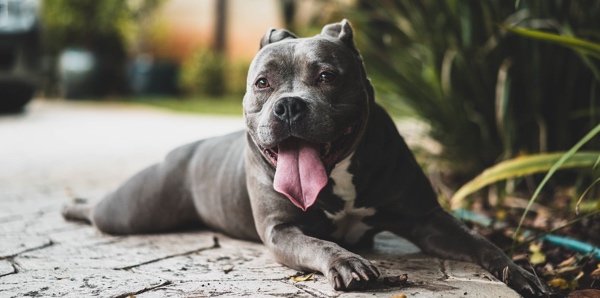Can surgery for my dog’s ruptured cruciate ligament be avoided with medication?
Original Question: My dog ruptured his cruciate ligament and the surgery to fix it is going to cost over $4000. Should I do it or can I just use medication. I have a 6 year old Boxer. - Anonymous
 Mar 1, 2018
Mar 1, 2018
TRANSCRIPT:
I’m Dr. Clayton Greenway with healthcareforpets.com and we’re answering questions this morning. Here’s one, “My dog ruptured it’s cruciate ligament and the surgery to fix it is going to cost over four thousand dollars. Should I do it or can I just use medication? I have a six-year-old Boxer.”
So this is a really common problem and it’s a really common problem in dogs. The cruciate ligament is also known as the anterior cruciate ligament or ACL ligament. It’s a common sports injury in people and this ligament is in the knee. So when it ruptures, the knee becomes destabilized and the bones will bang together, creating inflammation and arthritis over the lifetime of the dog. It’s really painful and it really affects their quality of life. What can happen is, you can start giving a dog anti-inflammatories, medication, and basically the knee will start to feel better and they’ll start walking better. I always worry about this because clients start to see that their dog is doing better but I know that the medication will then have to be used for life, that the knee will get worse, that there will be dramatic arthritis in it and very possibly the quality of life of this dog will really decline in the future and it won’t be able to do the things that it otherwise could. You could end up having to do more medication and I’ve even seen cases where we have to put our dogs down earlier because they’re having such mobility problems.
The surgery to correct it is very expensive and it keeps people away from doing the surgery, it’s a barrier for them. The issue is, is now I know after I’ve done this for some time, that the surgery is cheaper than the medication. Medication like anti-inflammatories and pain killers for a dog can cost upwards of a hundred, a hundred and fifty dollars a month for the dog’s life. So a four thousand dollar surgery that corrects the problem, fixes it, don’t worry about the general anesthetic. If you do a pre-anesthetic exam and blood work, they tend to do really well with anesthesia. Lots of surgeons do this surgery and when it’s corrected, they go back to being able to run again and a lot of them don’t even need medication. They will sometimes get some arthritis later in life in the knee, that’s kind of expected, but you really typically don’t have to give them any medication at all and they can go back to a full quality of life.
So I know now that even when I saw clients earlier, I always wanted to give them options, but now I’m a little more strict with it and I really give a strong recommendation to do the surgery because I’ve seen people go away from that and then have much greater problems in the future and more costs in the future without that upfront cost of the surgery. So thanks for sending that question in Stacey, I really wish you luck and I’m sure the surgery will really help your Boxer out and keep those questions coming. Thanks for visiting healthcareforpets.com where we’re dedicated to your pet’s health.


Disclaimer: healthcareforpets.com and its team of veterinarians and clinicians do not endorse any products, services, or recommended advice. All advice presented by our veterinarians, clinicians, tools, resources, etc is not meant to replace a regular physical exam and consultation with your primary veterinarian or other clinicians. We always encourage you to seek medical advice from your regular veterinarian.

